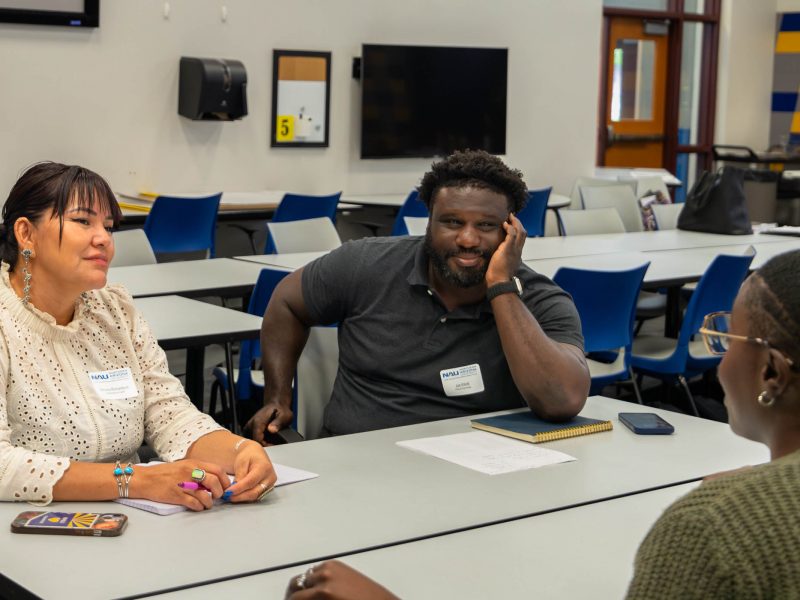C-CART Welcomes New Cohort as Scholars Present at Arizona Psychological Association Conference
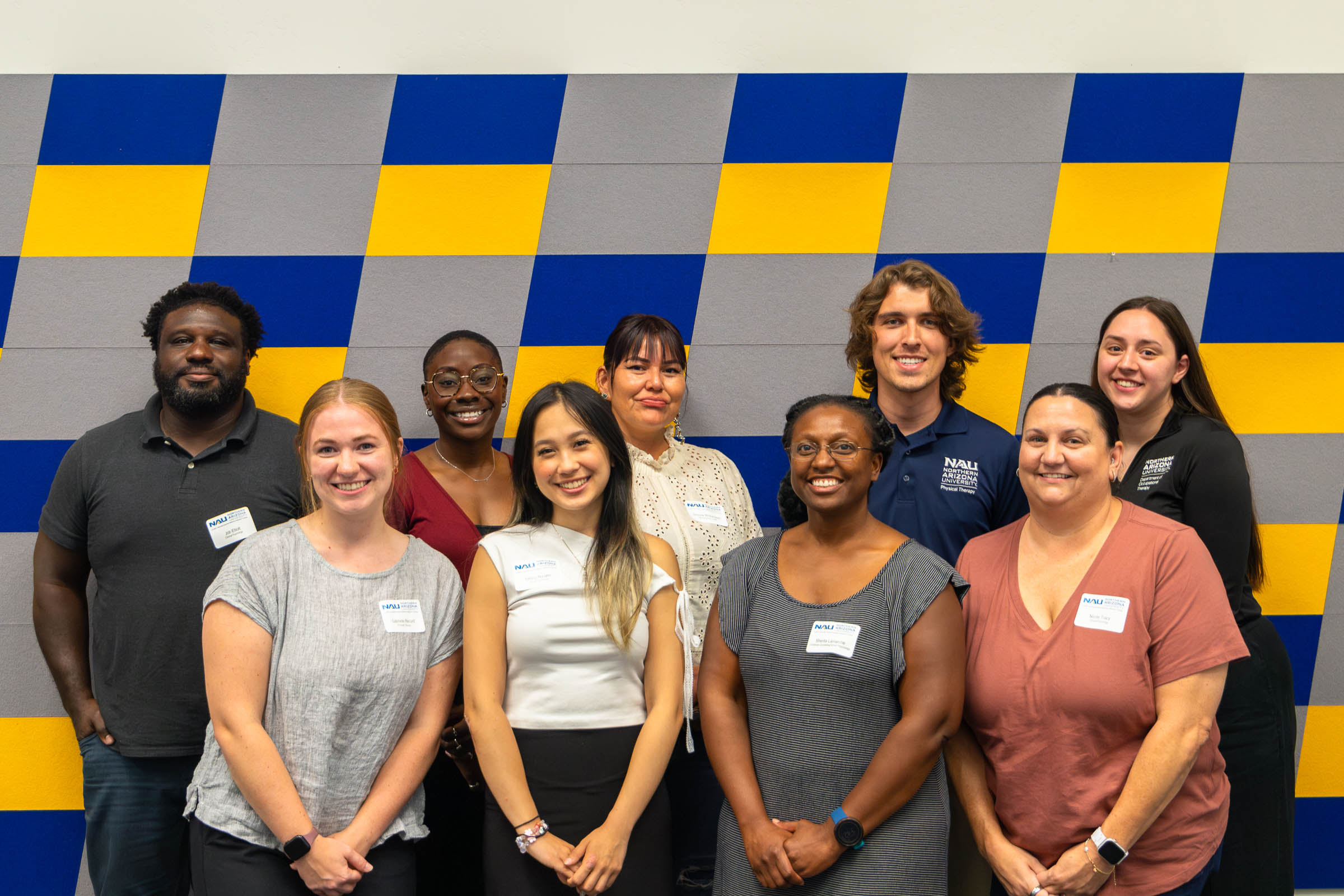
This year, eight scholars joined the Culturally Centered Addictions Research Training (C-CART) graduate certificate program, marking the launch of the program’s fourth cohort. As new scholars attended orientation in Flagstaff, three teams of C-CART researchers traveled to Tucson, Arizona, to present posters on their work at the annual Arizona Psychological Association (AzPA) conference.
C-CART, created in 2021 through a partnership between NAU’s Center for Health Equity Research (CHER) and the College of Education, with funding from the National Institute on Drug Abuse of the National Institutes of Health, offers specialized training for practicing clinicians and doctoral students in health professions to engage in culturally centered research on addictions. C-CART is co-led by Julie Baldwin, executive director of the Center for Health Equity Research and The NARBHA Institute Vice President for NAU Health, and Ramona Mellott, dean of the College of Education.
Welcoming a new cohort of scholars
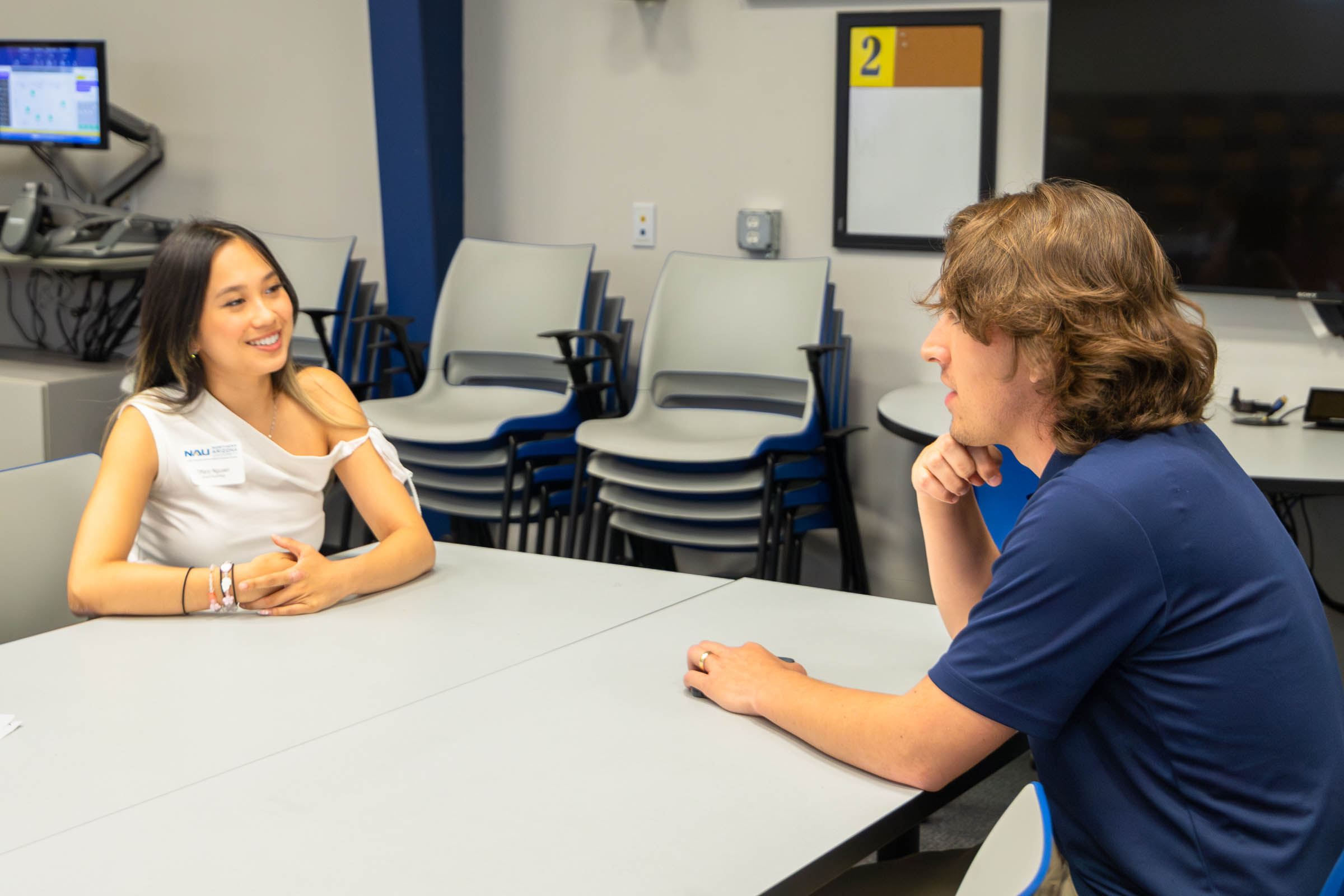
Each September, C-CART leadership, mentors, and current scholars gather on NAU’s Flagstaff Mountain campus to welcome the next cohort. The orientation provides scholars with valuable insights into the program’s structure and expectations, offering them guidance on how to navigate their individualized pathways through the program.
Scholars in C-CART tailor their experiences to meet their unique research objectives, which focus on culturally relevant approaches to addiction studies. Before they dive into their research projects, the orientation serves as a crucial starting point. Program facilitators offer training that prepares scholars to engage in interdisciplinary research, empowering them to contribute meaningfully to the field.
Fostering collaboration through networking
A key component of the orientation is the opportunity to network with other scholars and mentors.
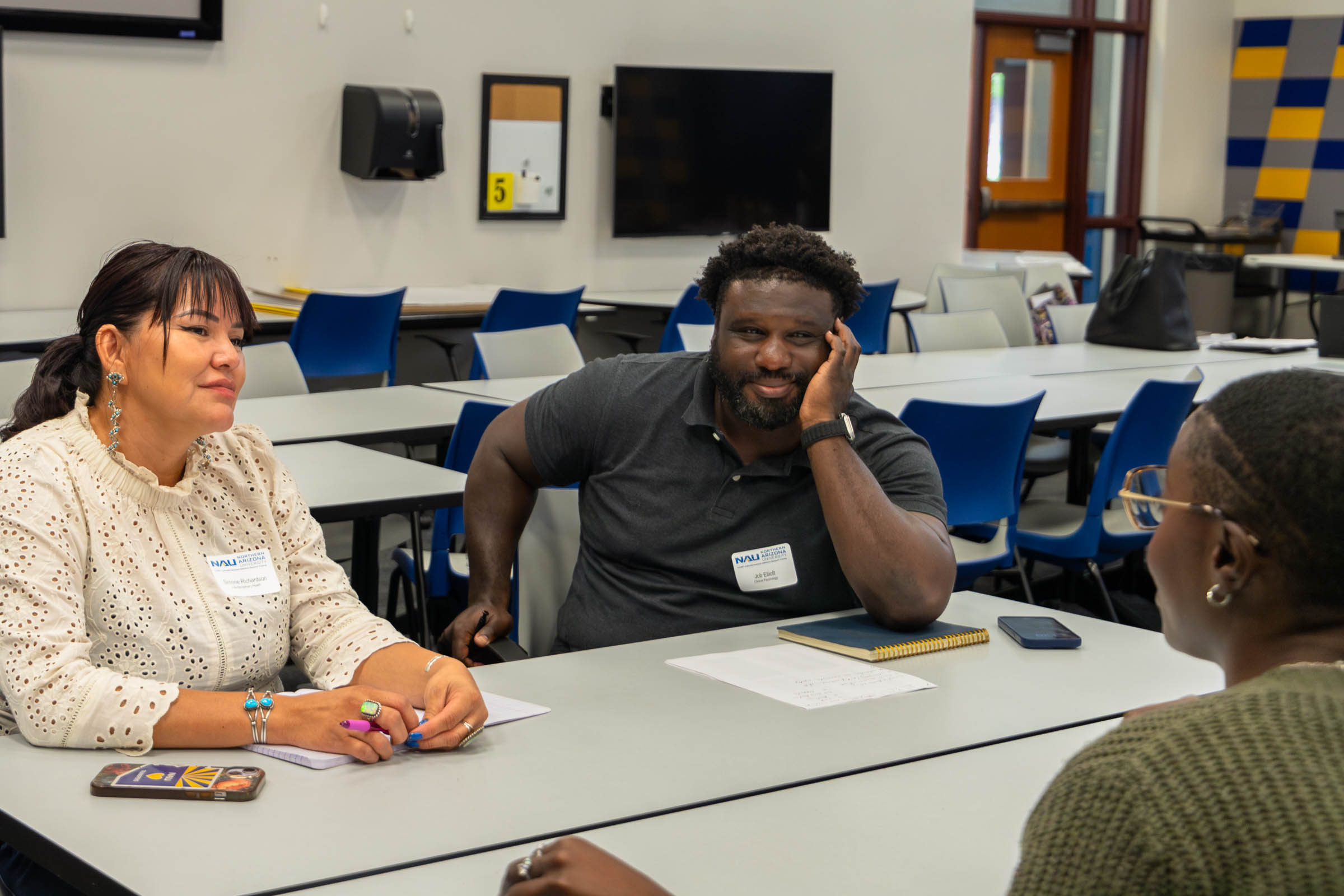
The multidisciplinary nature of the program attracts professionals across various fields within the health spectrum, from psychology to public health, creating a dynamic environment where research interests intersect. These connections allow scholars to identify common goals and form collaborative teams for community-based research, enhancing the impact of their work.
C-CART scholars shine at the Arizona Psychological Association Conference
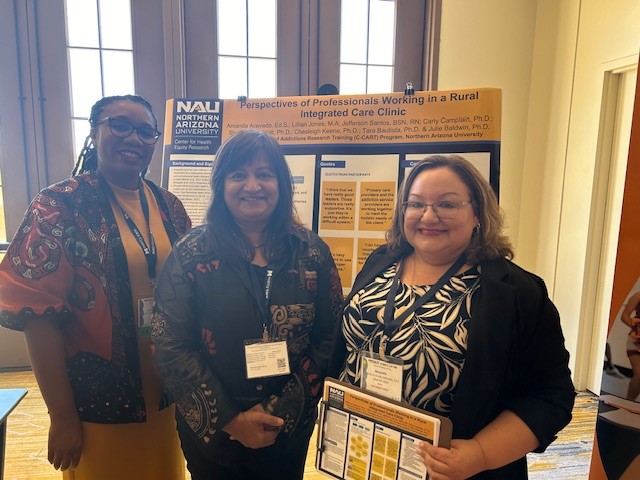
While the new cohort was beginning their journey in Flagstaff, three teams of current C-CART scholars traveled to Tucson to present their research at the Arizona Psychological Association (AzPA) conference. The theme of this year’s conference, “Embracing Embodied Healing: The Intersection of Science, Spirituality, and Culture,” perfectly aligned with the culturally centered focus of scholars’ work.
Amanda Acevedo and Lillian Jones, from Cohort 1, presented their poster on “Perspectives of Professionals Working in a Rural Integrated Care Clinic.”
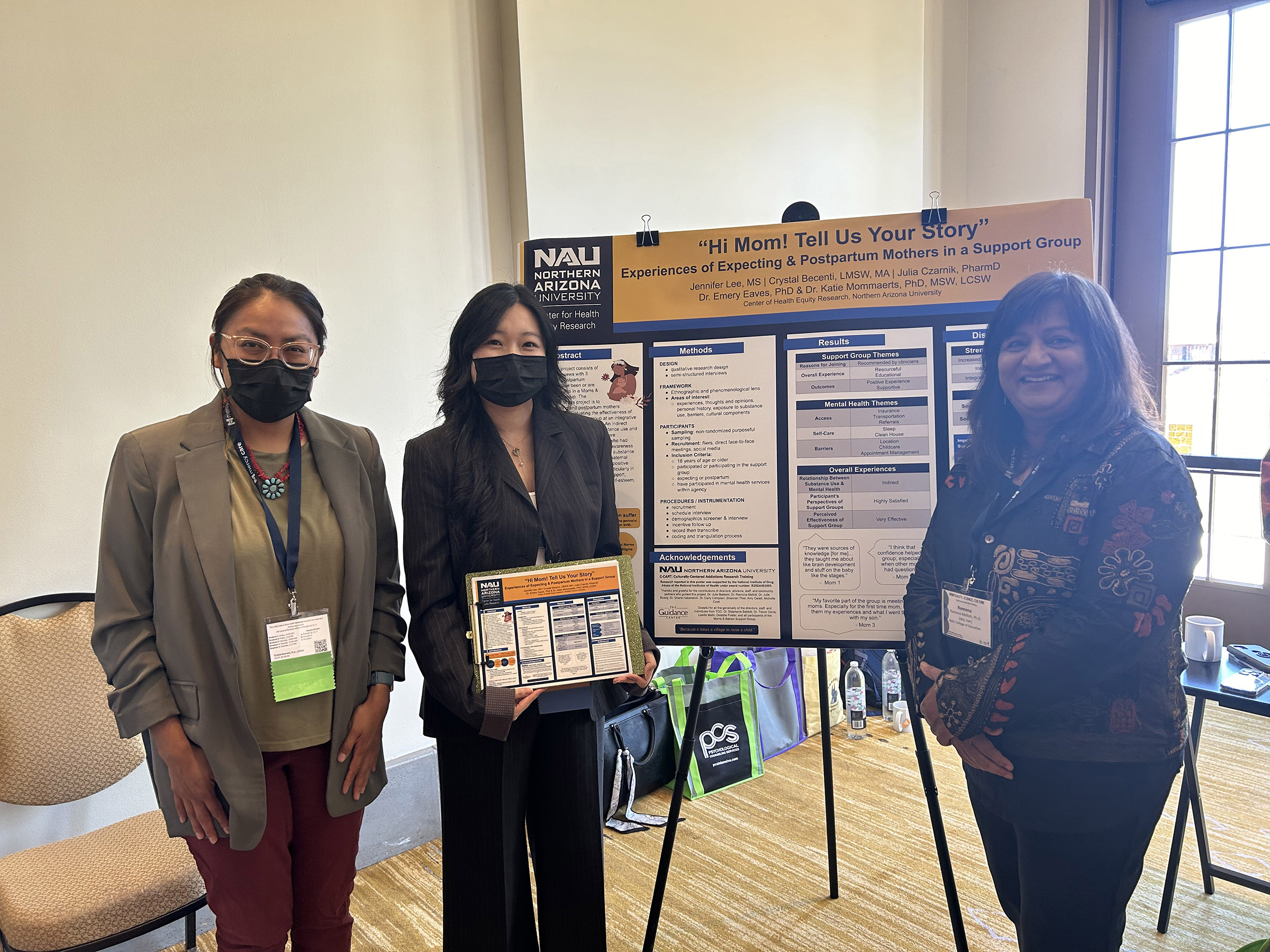
Cohort 2 scholars, Crystal Becenti and Jennifer Lee, shared their research titled, “Experiences of Expecting & Postpartum Mothers in a Support Group.”
Both Lee and Becenti shared their perspectives on participating in the statewide conference.
“Who would have thought this research would all bring us together in Tucson?” asked Lee jokingly. “It was amazing to see everyone again and spend time to catch up, not just on the research, but our connections in different fields.”
Conferences like AzPA offer professionals opportunities in networking that are invaluable for research collaboration.
Becenti also expressed positive benefits she gained during the conference, adding, “Great connections were made while learning about new research from others!”
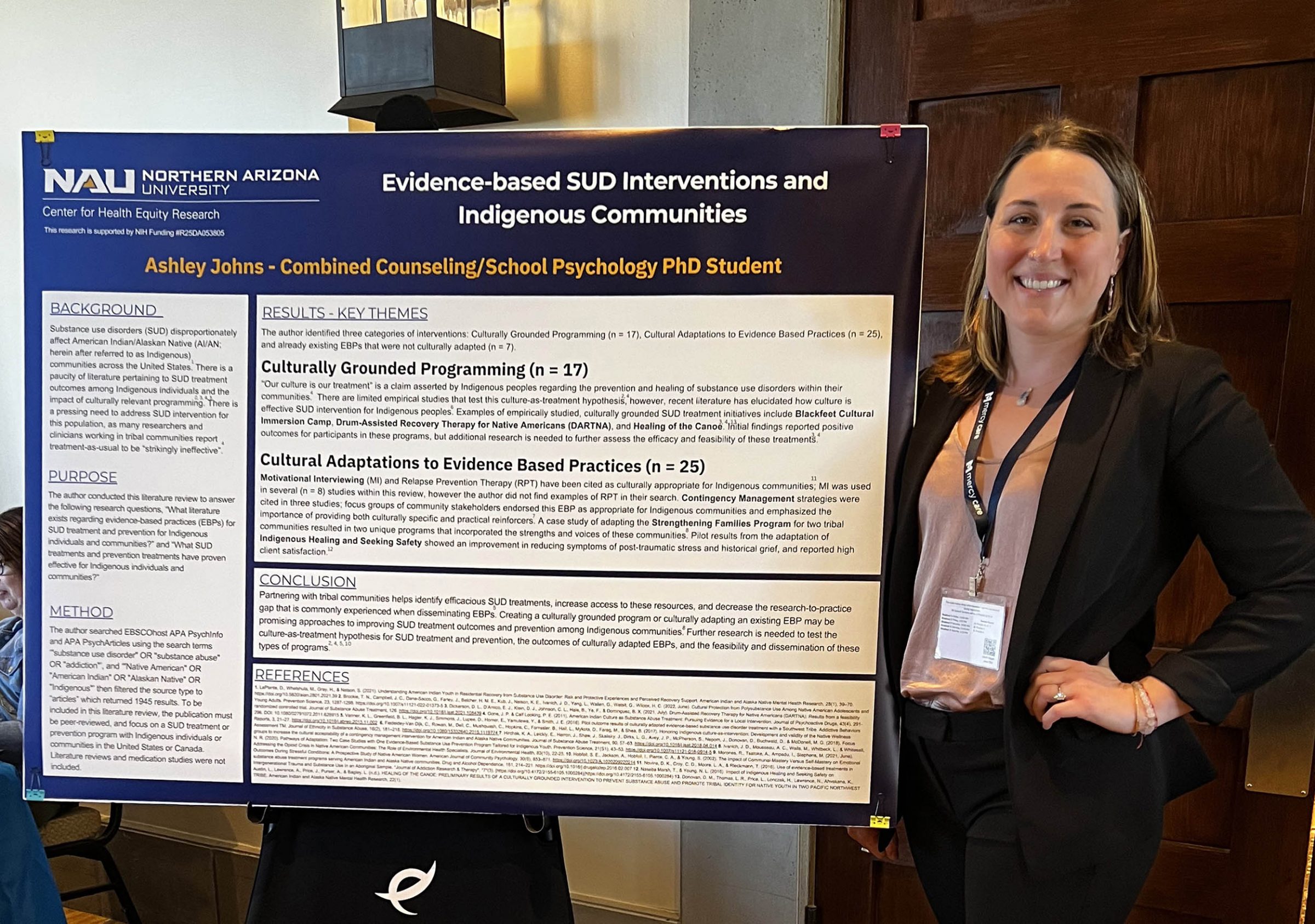
Ashley Johns, from Cohort 3, presented on “Evidence-based SUD Interventions and Indigenous Communities.”
Their participation was particularly significant, as their research projects, rooted in cultural contexts, fit seamlessly within the conference’s exploration of the intersection between science, spirituality, and culture. The opportunity to present at AzPA not only highlighted the importance of culturally centered addiction research but also broadened the potential impact of their work among practitioners and other professionals in the field.
Steps for the next cohort
As the fourth cohort scholars embark on their research journeys, the program will continue to nurture collaboration between scholars and community partners. In the spring, the new cohort will meet selected community organizations to explore potential research partnerships and develop projects that address critical issues in addiction treatment and recovery.
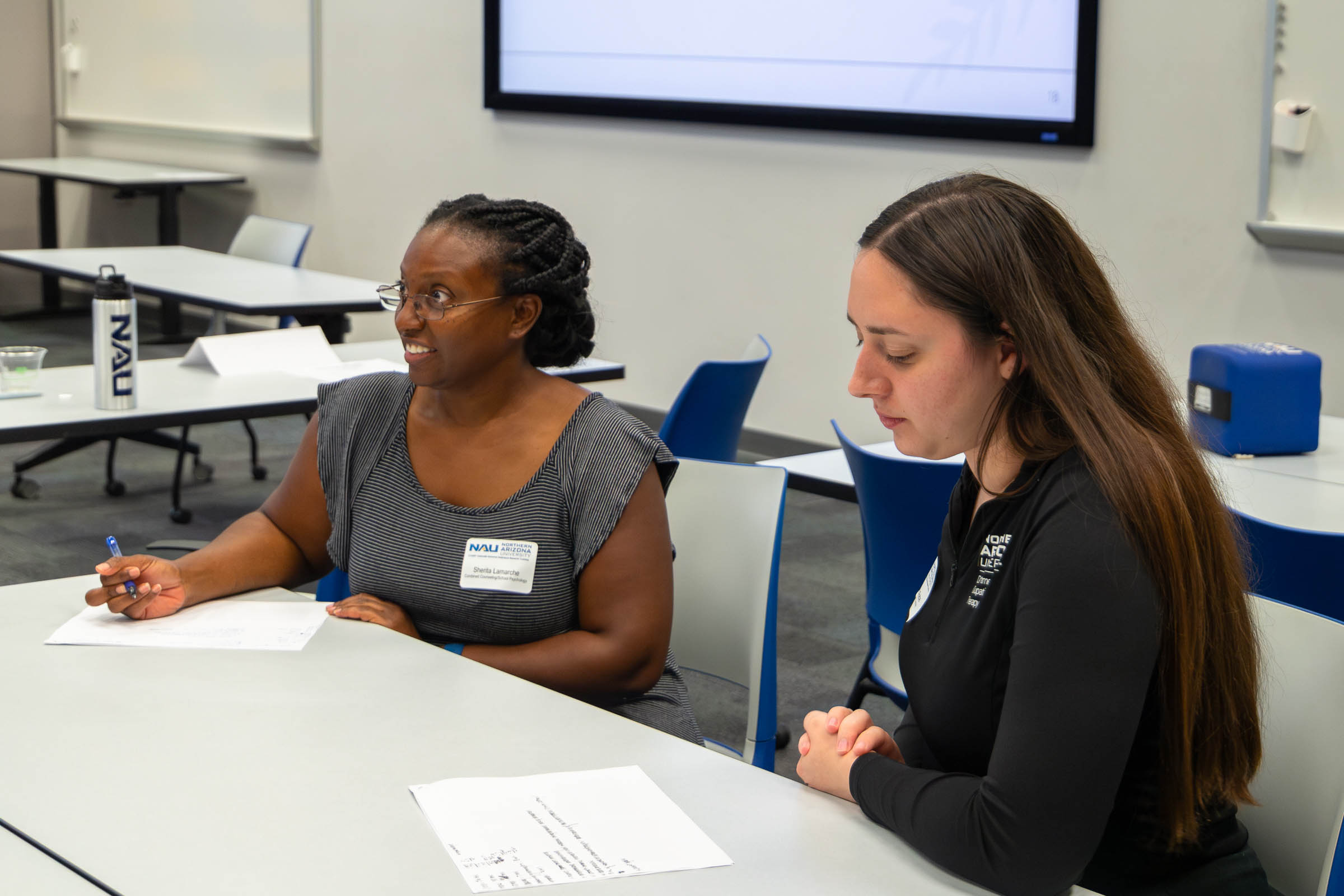
With a growing network of scholars and alumni, C-CART is poised to further its impact on culturally centered addiction research in Arizona and beyond.
This program is supported by the National Institute on Drug Abuse of the National Institutes of Health under award number R25DA048470.
